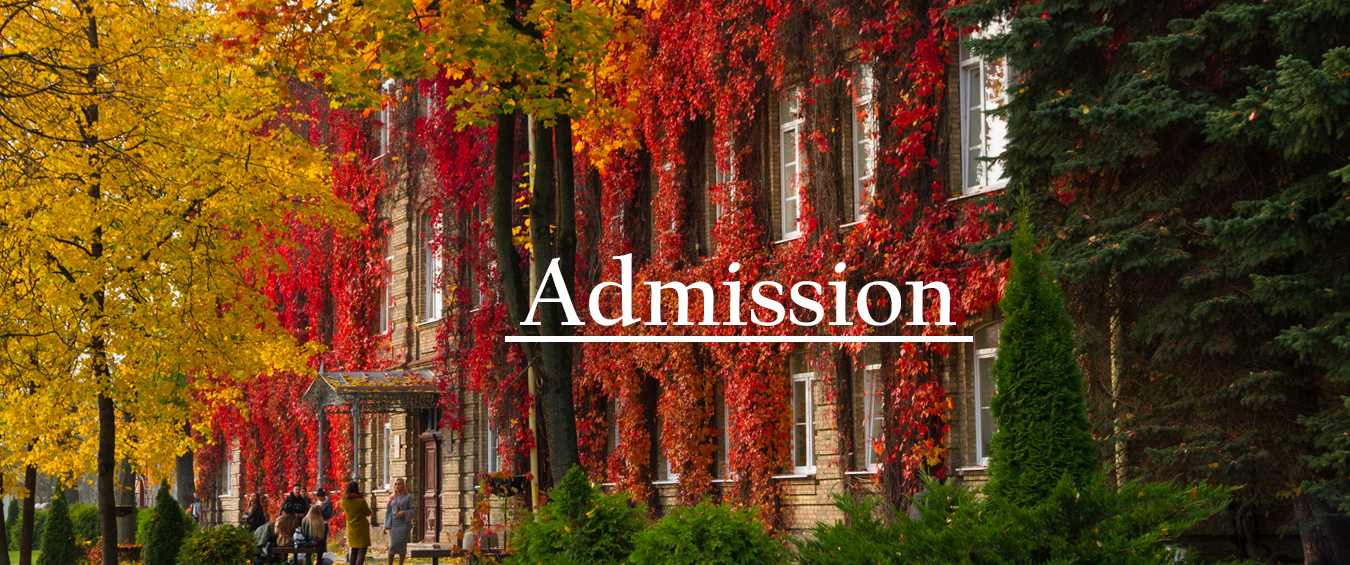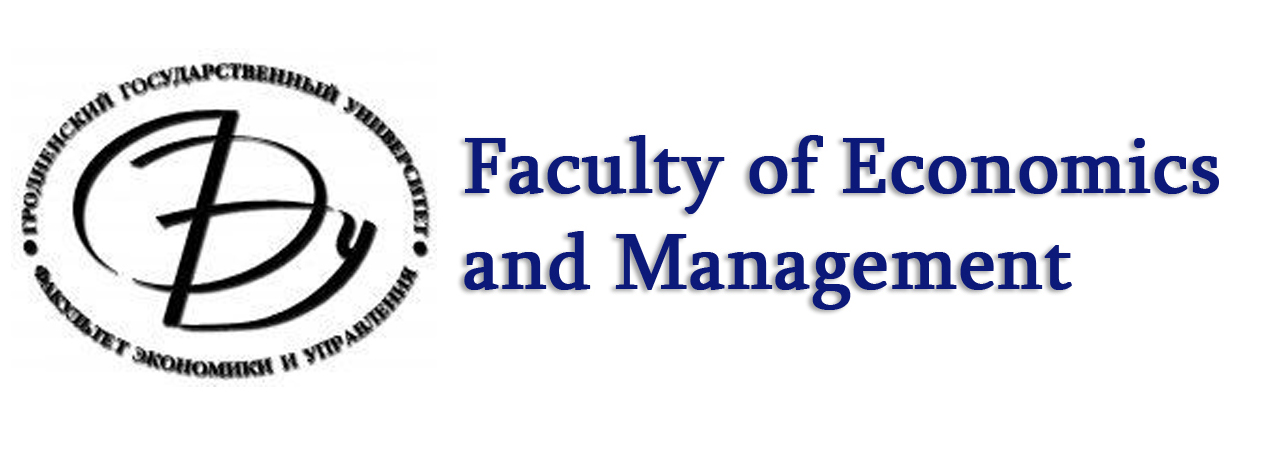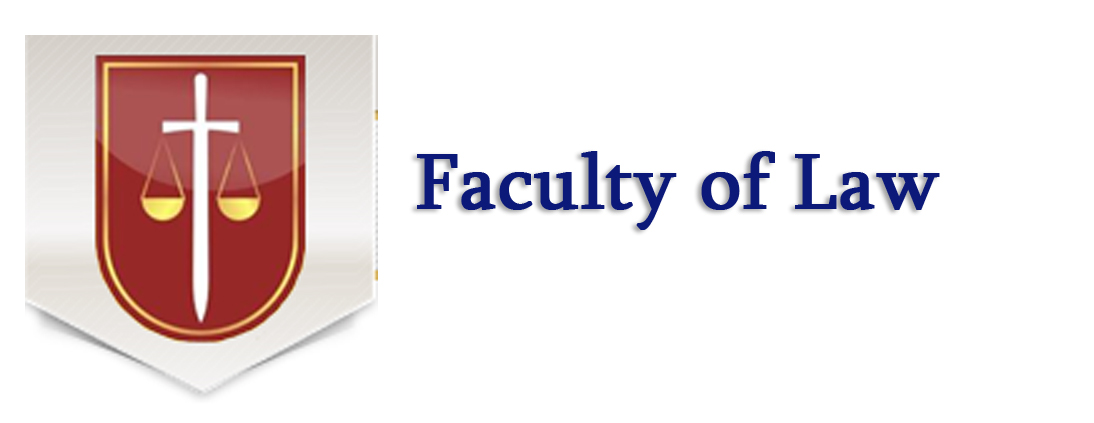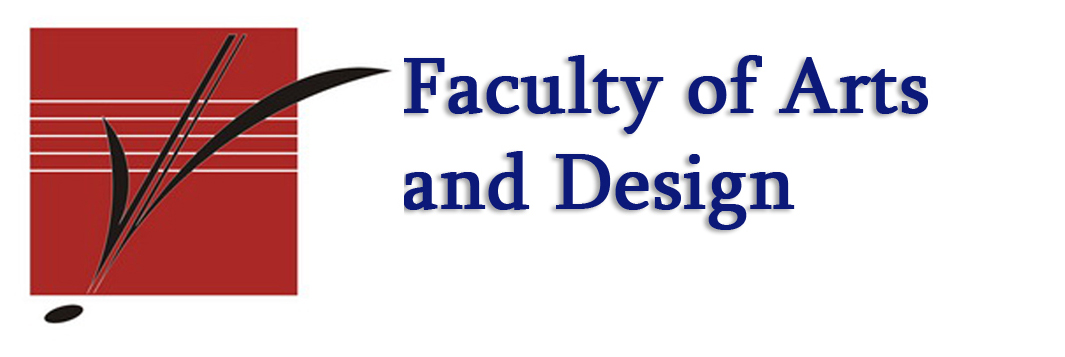
Yanka Kupala
State University of Grodno
Super User
Yanka Kupala State University of Grodno and will jointly train master’s students in economics (VIDEO IS ATTACHED) Within the framework of the joint educational program, the training of master’s students in a «1+1» pattern will be carried out at the two universities.
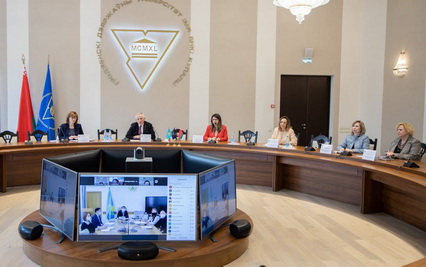
The agreement on the implementation of the joint educational program was signed by the Rector of the Yanka Kupala State University of Grodno, Iryna Kiturka, and the Rector of the Kazakh University of Economics, Finance and International Trade, Sarsengaly Abdymanapov. The official launch of the program was announced during an online meeting between the two universities.
During the virtual dialogue, the Vice-Rector of the Yanka Kupala State University, Yury Bialykh, noted that the Yanka Kupala State University has recently been actively developing partnerships with institutions of higher education in Kazakhstan.
– The Yanka Kupala State University of Grodno cooperates with universities of the Republic of Kazakhstan in the framework of 16 agreements on international cooperation, noted Yury Bialykh. - Effective cooperation in the educational and scientific fields has been established with regional and capital institutions of higher education in Kazakhstan. Today, we are pleased to launch our joint educational program with the Kazakh University of Economics, Finance and International Trade to train masters in economics.
The training will be implemented under the «1+1» pattern. It is planned that master’s students from Kazakhstan will start their studies in Yanka Kupala State University in the second semester of the new academic year. In the first semester they will study at the Kazakh University of Economics, Finance and International Trade.
– We have been cooperating with this university in educational and scientific activities for more than five years. But realization of such joint educational program for us is a pioneering project, - shared the Dean of the Faculty of Economics and Management Marina Karpitskaya. The joint training of master’s students in economics will take into account our practical-oriented component as well as the presence of elements of digital economy at Yanka Kupala State University, as many subjects will be taught in our IT-laboratories. Representatives of Grodno enterprises - our personnel customers - will be involved in the educational process. I’m sure the program will be eventful. We are now developing road maps within the framework of the signed agreement and we are preparing to receive the first group of masters from Kazakhstan.
The possibilities of joint master’s students training according to pattern «1 semester + 1 semester» were discussed as early as November last year during the visit to Yanka Kupala State University by Asel Rakhimbekova — the Deputy Dean of the Faculty of Economics and Management of the Kazakh University of Economics, and International Trade. The visit took place within the framework of realization of program «Invited Professor». It is now known that more than 20 master’s students from Kazakhstan will participate in the joint educational program.
|
Faculty |
||
|
Specialty |
1-25 80 03 «Finance, Taxation and Credit» | |
| Language of study | English | |
| Mode of study | Full-time | |
| Term of study | 1 year | |
| Entrance exams for foreign citizens | ||
|
Curriculum (with an indication of the main disciplines studied) |
Names of master’s degree students’ activities, cycles of disciplines, disciplines | Number of credits |
|
|
The course is aimed at developing in-depth and additional knowledge in the field of modern microeconomic analysis, as well as at developing skills for solving practical problems that are associated with such courses as "Macroeconomics", "Economics of Enterprise Management" and "National Economy". The course "Microeconomic Analysis and Policy" is a discipline for master's degree students of economic specialties of higher educational institutions. The course program allows you to improve your professional skills competence is a tool for conducting further economic research. The main objectives of the course: students ' mastery of modern means of microeconomic analysis for conducting scientific research in the field of economics; acquisition of skills for solving practical problems using microeconomic analysis tools; the use of microeconomic analysis for the assessment of macroeconomic policy. |
3 |
The discipline "Macroeconomic analysis and policy" serves as the basis for the study of the discipline "Econometrics (advanced level)" Goals and objectives of the discipline: to deepen the understanding of undergraduates about the most important mechanisms of the functioning of the national economy; to teach future specialists to make effective management decisions taking into account the macroeconomic policy implemented in the country. Objectives of the study of the discipline: understanding the peculiarities of the functioning of the national economy; identification of economic instruments of influence on the main macroeconomic mechanisms, systems and parameters of others; mastering the tools for analyzing the consequences of macroeconomic regulation in a closed and open economy |
3 | |
The discipline "Modern concepts of finance and credit" allows you to provide an in-depth understanding of interrelated disciplines through an in-depth study of the conceptual apparatus. The purpose of the discipline: the formation of undergraduates ' understanding of the essence and content, possession of the conceptual apparatus in the field of modern functioning of finance and credit. Achieving this goal involves solving the following tasks in the course of studying the discipline: studying the theoretical foundations of the concepts of finance and credit; getting acquainted with the most important modern concepts finance, the study of their essence, the possibilities of practical application; formation of practical skills for solving typical tasks of financial management. |
3 | |
The discipline "Network technologies in financial and banking activities" provides a future specialist with a wide range of knowledge and skills in the field of computer information technologies, which will allow them to effectively use their knowledge in practical work in the future. The acquired knowledge and skills will also be in demand when studying special disciplines of economic orientation and will become a tool for the competent execution and design of abstracts, term papers and theses. Study of the discipline "Network technologies in financial and banking activities". It provides the economist with a wide range of knowledge and practical skills in the application of network and cloud technologies that are in demand in professional activities. The subject of the discipline is network technologies as tools for solving problems in financial and banking activities. The purpose of teaching the discipline: the formation of the necessary amount of theoretical knowledge on network and cloud technologies and services; the development of practical skills for their use in commercial activities. Course objectives: introduction to the basic concepts and terminology of networks; introduction to the cloud computing infrastructure; acquisition of skills in the use of network and cloud technologies and services in commercial activities |
3 | |
In the course of studying the discipline, undergraduates should develop skills in using the main categories of innovative development, master the main methods of teaching financial literacy in their professional activities, with the possibility of translating these skills to different groups. Using the knowledge gained in the field of research, as well as managing these processes in the context of sustainable development. The purpose of studying the discipline is to contribute to the formation of the master's students' conceptual apparatus in the field of innovative development and financial literacy. The main objectives of the study of the discipline: the study of legislation, normative legal acts regulating innovative activities in various sectors of socio-economic development of the Republic Belarus; analysis and management of financial innovations; mastering the methods and techniques of professional skills and teaching financial literacy to various groups of stakeholders; using methods and tools for evaluating the effectiveness of financial decisions. |
3 | |
The course "International Financial Reporting Standards" is based on the knowledge gained in the following subjects: "Money, credit, banks", "Money circulation and credit", "Finance of organizations", "Management accounting". Objectives and objectives of the discipline: to provide a set of theoretical knowledge about the essence and basics of reporting on the basis of international standards; to consider the principles of reporting in accordance with international standards; preparation of accounting policies in accordance with IFRS; to form a complete system of students ' knowledge about preparation of accounting policies in accordance with IFRS. The objective of the course is to form students ' knowledge of the principles of reporting in accordance with international standards; preparation of accounting policies in accordance with IFRS; to bring domestic reporting in a format that complies with IFRS. As a result of studying the discipline, students should be able to draw up various types of transformation tables, balance sheets, profit and loss statements, and draw up the accounting policy of the enterprise in accordance with IFRS. |
3 | |
This discipline occupies a significant place in the training of a specialist in the field of management among the disciplines of the specialty; it is associated with the following academic disciplines: "Macroeconomic analysis and policy", "Modern tax policy and tax practice", "Microeconomic analysis and policy". The main purpose of the course "Financial Management (advanced level)" is an in-depth study of the theoretical and methodological foundations of financial management, as well as the skills necessary in practice. This course is required for formation of a complete system of knowledge about financial management; disclosure of the interrelationships of all concepts, their internal logic and the economic model of the functioning of financial relations. The discipline "Financial management" is aimed at solving the following tasks: the study of modern concepts of financial management and aspects of the work of a financial manager; the study of the specifics of the work of a financial manager, the features of building financial management structures; study of modern theories and concepts of financial management; deepening knowledge about risks in the organization's activities: their identification, assessment and management; improving skills and knowledge in managing the current assets of the organization; studying the features of optimizing the structure of the financial resources of the enterprise, capital management, non-current and current assets, cash flows of the organization; research of modern methods of financing the organization's activities. |
3 | |
The course "Organization of the credit process" refers to the basic disciplines of the specialty. On the basis of the course "Organization of the credit process", the master will be able to assess the past and current financial situation, as well as the results of the financial and economic activities of the economic entity on the basis of which the decision on lending is made. The course "Organization of the credit process" is the basis for further study of other disciplines: "Strategic management", "Control and audit", " Complex economic analysis of economic activity», "Audit", "Financial analysis", etc. The curriculum of the course "Organization of the credit process" corresponds to the didactic units State educational standard of Master's degree training. Bank lending is a complex process that requires a high-quality approach to its organization in every commercial bank. The objectives of the course "Organization of the credit process" are to obtain theoretical and applied professional knowledge, as well as the skills of masters in the field of organization of lending in second-level banks, evaluation the creditworthiness of bank borrowers, the organization and implementation of the bank's credit activities. Special emphasis is placed on the acquisition of skills of independent initiative and creative use of theoretical knowledge in practical activities in the conditions of the "new" economy. The training course "Organization of the credit process" is aimed at solving the following tasks: - acquisition by students of modern ideas about bank credit and the bank's credit policy, knowledge about the methods of assessing the creditworthiness of bank borrowers and the procedure for issuing loans for various client groups; - formation of skills for the organization of the lending process in a commercial bank; - development of skills that provide an opportunity to solve the problems of commercial banks ' lending activities and develop ways to improve their efficiency. |
6 | |
The academic discipline "Modern tax policy and tax practice" is one of the applied disciplines that form future specialists in the field of finance, taxation, banking, and organization economists. The basic disciplines for studying the academic discipline "Modern tax policy and tax practice" are: "Macroeconomics", "Microeconomics", "State Budget", "Finance", "Money circulation and credit", "Taxes and Taxation", etc. Objectives of the discipline " Modern tax policy and practice preparation of undergraduates for the analysis and evaluation of the most important areas of the state's tax policy; formation of a holistic view of the tax mechanisms for the implementation of the state's economic and social policy through effective management of cash flows through tax policy. The objectives of the discipline are: to study the problem of effective construction of the tax system on the basis of objective theoretical positions; study and analysis of tax systems in market and transition economies economy; assessment of the current state of the tax system and the problems taxation in the Republic of Belarus; the study of calculus and taxes, operating in Belarus and abroad; the analysis of specificity formation of objects of taxation, tax benefits in individual industries and the economy as a whole; evaluation of the system of forming the use and prospects of development of target budgetary and extra-budgetary funds; the formation of the system of management of tax system and processes of taxation at the state level; evaluation opportunities and necessity of tax reforms at different stages of the national economy development. |
3 | |
|
3 | |
The academic discipline "Methods of commercial and financial calculations" is one of the applied disciplines that form future specialists in the field of finance, taxation, banking, and economists of organizations. The basic disciplines for studying the academic discipline are: "Macroeconomics", "Microeconomics", "State Budget", "Finance", "Money circulation and credit", "Modern tax policy and tax practice", "Taxes and Taxation", etc. The purpose of teaching the discipline is to familiarize students with the basics financial mathematics, as well as teach how to make complex financial and economic calculations and apply basic methods of analysis and capital management in market relations. Within the framework of this goal, the objectives of the discipline are as follows: the formation of skills for conducting financial and economic calculations; formation of skills to apply financial and economic calculations in solving various economic problems that arise in a market economy. |
3 | |
The discipline "Assessment in insurance organizations" (advanced level) refers to the disciplines of special training. To master this discipline, students must master the sections of the disciplines: "Statistics", "Economic Theory", "Enterprise Economics", "Theory of Economic Analysis", "Finance", "Insurance", "Insurance in foreign trade". The academic discipline "Assessment in insurance organizations" is a systematic presentation of the theoretical, methodological, organizational and practical foundations of property and risk assessment in the following cases: mandatory and voluntary insurance insurance organizations of the Republic of Belarus on the stage of signing contracts insurance and insurance cases, aimed at formation of analytical and creative thinking skills use analytical tools in the practical work for an objective assessment of the actual value of the object taken at insurance and exposed to insurance cases. It is the scientific basis for the development of optimal economic and financial efficiency. policies of insurers and policyholders, the basis for making strategic and tactical management decisions and assessing the impact of decisions made on the management of insurance risks and the final results of work. The purpose of teaching the discipline "Assessment in insurance organizations" is an in-depth study of the procedure for assessing the property accepted for insurance, risks, acquisition of skills for determining it based on a comprehensive analysis; development of analytical thinking among students; use of the results of the assessment of insurance objects in the educational process. The process of substantiating the development strategy of insurance organizations and organizations-policyholders. The tasks that face the study of the academic discipline: - to master the skills of evaluating objects for different types of insurance and its use in concluding insurance contracts; - to acquire the skills and skills of using analytical tools for an objective assessment of property and risks; - master domestic and foreign methods of analyzing the most important valuation indicators for insurance purposes; - be able to justify the optimal management decisions in the insurance organization. |
3 | |
The content of the academic discipline is coordinated with such academic disciplines as" Accounting in banks"; "Organization of banks 'activities". "Analysis of banking activities" and other disciplines. In a market economy, the requirements for professional knowledge of banking sector employees are constantly increasing. The most important task of the higher school is to solve the problem of training such specialists, in particular for the banking system. Discipline " Banking supervision and audit” in the system of other special economic sciences, the most in-depth studies of individual issues of audit theory, in connection with the practical knowledge acquired in the study of other disciplines in banking. Topics include overview theoretical and practical material. The study of the academic discipline "Banking supervision and audit" is provided for by the educational standards of higher education in all economic specialties and is included in the cycle of general professional disciplines. The main purpose of its study is to form the knowledge of future specialists on the organization, methodology and methods of audit work. The ability to use the auditor's report to make informed management decisions in banking and production activities. The main objectives of the study of the discipline "Banking supervision and audit" are: the formation of knowledge about the nature of the audit, the objects and methods of its implementation; the study of the theoretical foundations of the audit standards; preparation and presentation of reports that meet the requirements of external and internal users |
3 | |
|
The main competencies that the graduate will acquire |
|
|
|
Options to continue education (postgraduate specialties) |
|
|
| Graduate certificate | MASTER’S DEGREE DIPLOMA | |
|
Faculty |
||
|
Specialty |
1-24 80 01 Jurisprudence | |
| Profilization | Legal Regulation of Foreign Economic Activity | |
| Language of study | English | |
| Mode of study | Full-time | |
| Term of study | 1 year | |
| Entrance exams for foreign citizens | ||
|
Curriculum (with an indication of the main disciplines studied) |
Names of master’s degree students’ activities, cycles of disciplines, disciplines | Number of credits |
|
|
• Lawmaking of Representative, Executive and Judicial Authorities • Legal Support of the Development of an Electronic State |
9 |
• Institutional Law of the Union State, EEU and CIS |
6 | |
|
3 | |
|
3 | |
• State Regulation of Foreign Economic Activity • International Settlement and Credit Relations |
9 | |
• EU Corporate Law • International economic law |
9 | |
• Protection of Foreign Economic Activity's Subjects in International Courts of Arbitration • Protection of Foreign Economic Activity's Subjects in International Judicial Bodies |
6 | |
|
3 | |
|
12 | |
|
The main competencies that the graduate will acquire |
|
|
| Graduate certificate | MASTER’S DEGREE DIPLOMA | |
|
Faculty |
||
|
Specialty |
1-16 80 01 Music Art | |
| Profilization | Psychological Consulting and Psychological Correction | |
| Language of study | English | |
| Mode of study | Full-time | |
| Term of study | 1 year | |
| Entrance exams for foreign citizens |
|
|
|
Curriculum (with an indication of the main disciplines studied) |
Names of master’s degree students’ activities, cycles of disciplines, disciplines | Number of credits |
| 1. State constituent | ||
| 1.1 Music Education and Science Module | ||
|
|
|
3 |
|
6 | |
|
3 | |
| 1.2. Module 'Research work' | ||
|
6 | |
| 2. Higher education institution component | ||
| 2.1. Module 'Actual directions of Professional Activity' | ||
|
6 | |
| 2.2. Module ‘The Art of Interpretation’ | ||
|
12 | |
|
3 | |
|
6 | |
|
3 | |
|
The main competencies that the graduate will acquire |
|
|
| Options to continue education (postgraduate specialties) |
The master's degree must be prepared for the development of the postgraduate educational program mainly in the following specialties: 17.00.02 Music Art; 13.00.08 Theory and Methodology of Professional Education. |
|
| Graduate certificate | MASTER’S DEGREE DIPLOMA | |
Oleg Romanov was appointed the Rector of Polotsk State University
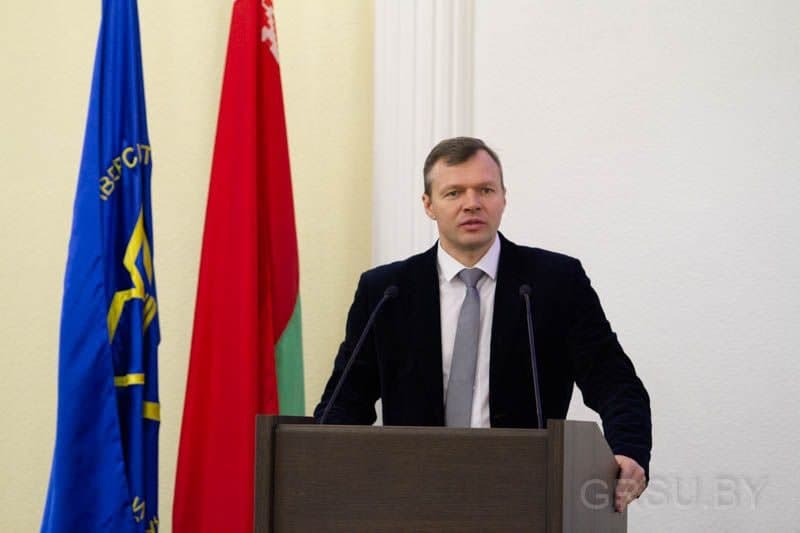
The appointment was approved by the President of the Republic of Belarus Alexander Lukashenko on March 11.
Until now, Oleg Romanov has been the first Vice-Rector of the Yanka Kupala State University of Grodno.
Oleg Romanov graduated from Yanka Kupala State University in 1997. In 2001, he defended his PhD thesis “Socialization of Personality under the Conditions of Social Transformation”. In 2012 he accomplished his doctorate program at the State Scientific Institution “Institute of Philosophy”, the National Academy of Sciences of Belarus and three years later defended his doctoral thesis “The Eastern Slavic civilization as a subject of modern global social transformations”. Oleg Romanov was awarded the degree of Doctor of Philosophy.
Since 2000, Oleg worked at Yanka Kupala State University of Grodno as a lecturer, senior lecturer, associate professor and professor at the Philosophy Department. Since February 2018, Oleg Romanov was the first Vice-Rector of Yanka Kupala State University of Grodno.
Oleg Romanov was awarded a scholarship by the President of the Republic of Belarus as a talented young scientist in 2017. His research interests include the problems of the genesis, structure and prospects of the development of the Eastern Slavic civilization, classical and modern Russian philosophy, and the fate of the state in a globalizing world.
In 2019, Oleg Romanov was elected as a member of the National Assembly Council of the Republic of Belarus during the seventh convocation from the Grodno region. He was appointed to the position of the Rector of Polotsk State University on March 11, 2021.
The professor of Yanka Kupala State University of Grodno received the gratitude of the Prime Minister of the Republic of Belarus
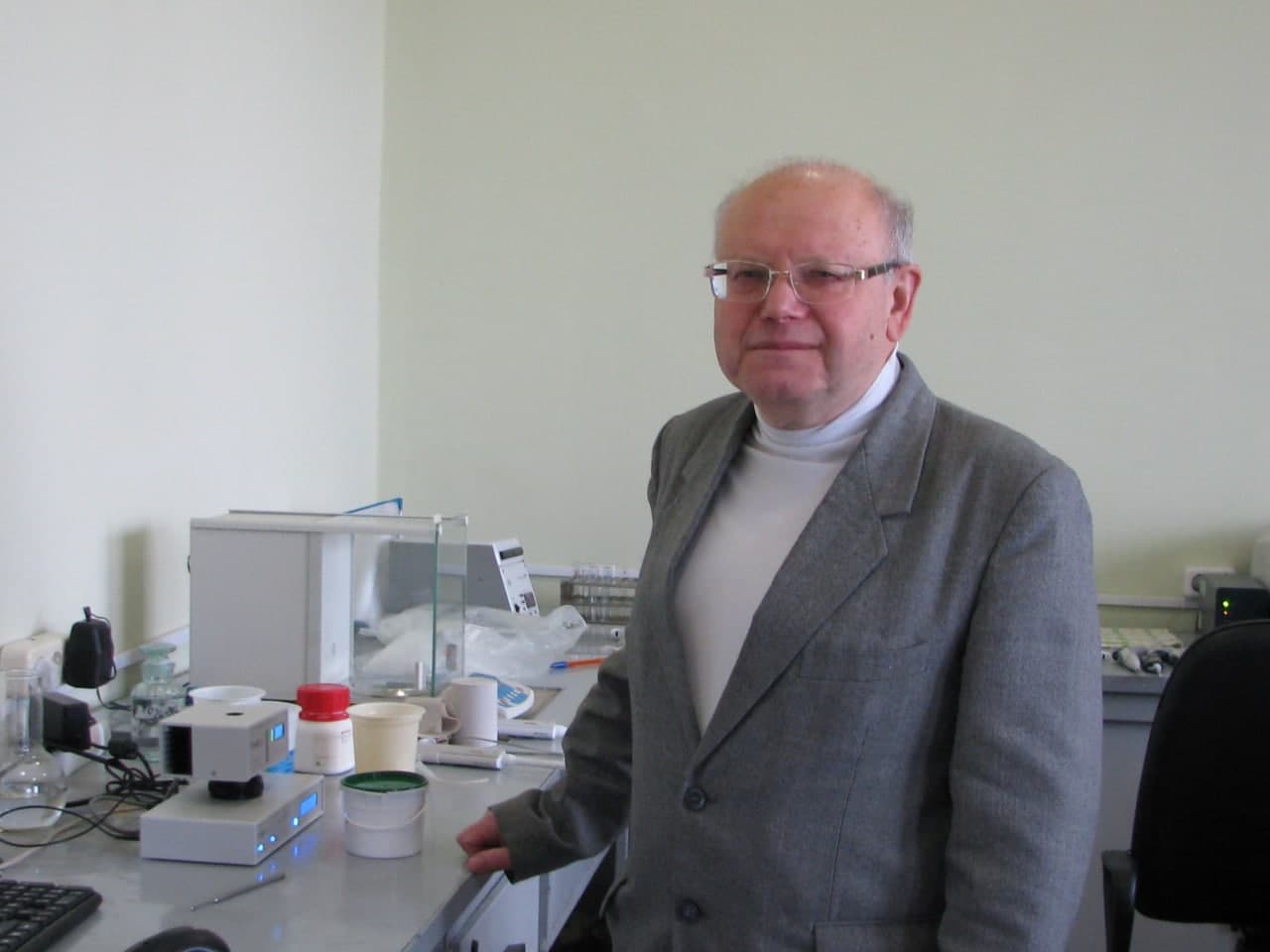
Ilya Zavodnik, Doctor of Life Sciences, Professor, Head of the Department of Biochemistry of Yanka Kupala State University was honored with the Government award.
The gratitude of the Prime Minister of the Republic of Belarus has been announced to Professor Ilya Zavodnik for many years of effective research and innovation activities, significant contribution to development and training of highly qualified personnel.
The results of the advanced training for teachers and employees «University of Educational Innovation» were summarized in Yanka Kupala State University
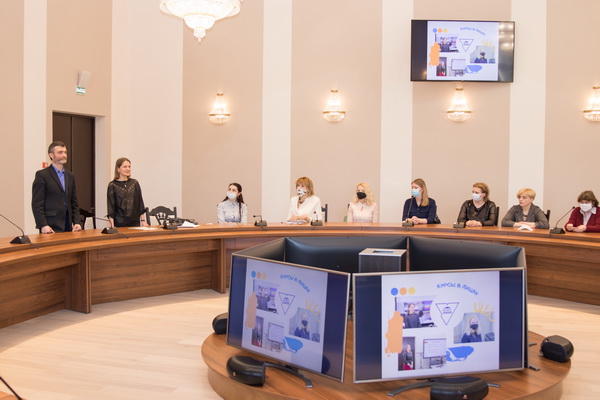
About 50 university lecturers and staff attended the sixth season of the advanced training.
18 directors and specialists of educational and methodological offices mastered the content of the educational program «Organization and technical support of the educational process using ICT», and 30 teachers of the Yanka Kupala State University learned the content of programs «Innovative Teaching Methods».
From January to March, the course participants studied four training modules: «The Educational Portal of Yanka Kupala State University as an interactive educational platform», «Google Learning Services», «Video as a learning tool for teachers and students», «Microsoft Teams: creating a collaborative learning environment». The organizational methodology of the sessions has helped to establish a productive learning environment. During the course, participants recorded training promo- videos in Russian and English, in which they explained why subjects of different specializations were important for the development of the professional competences of future specialists.
The videos will be posted on the educational portal of YKSUG and the website of the electronic scientific and methodological journal «University of educational innovations». During the final event, the participants presented their experiences and shared their results on the course platform, in the classroom, in the computer room and in the video studio.
– The course programme was interesting and eventful. Despite the fact that some topics were already familiar, the moderator managed to present them from creative side - explained the head of the teaching and methodological office of linguistic computer technologies Elena Snezko.
– When I was recording a video in Academic Discipline, I didn’t think it would be possible to receive any personal information – shared the senior lecturer of the Department of Logistics and Management Methods Tatiana Gostik. - The video performs not only didactic functions, it allows to realistically evaluate one’s own work, behavior in front of the camera, the ability to be a convincing and interesting teacher.
– The platform Teams is aimed at active users - emphasized in communication with colleagues the course moderator, Deputy Dean of the Faculty of Mathematics and Informatics Tatiana Vankova. - It will be a real breakthrough for teachers who focus on interaction with students who need instant feedback, for whom the productive activities of students during distance learning come first.
– The proposed courses were initially surprising. However, after a while, it became clear that their duration not only provide useful information from moderators and videos on discipline, but also expand the range of communication, learning about the experiences of colleagues working in other faculties, sharing their success, difficulties, plans, - noted Assistant Professor of Theoretical Physics and Thermal Engineering, Vladislav Kurstak.
Participants received certificates of advanced training from the moderators of the Yanka Kupala State University of Grodno.
Five new educational and scientific laboratories are opened in the Yanka Kupala State University of Grodno on loan from the International Bank for Reconstruction and Development
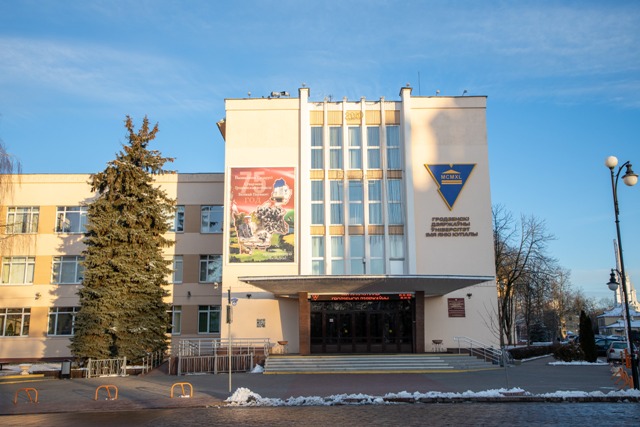
2,350,000 euros under the loan have been allocated for the development of the material and technical base of the Yanka Kupala State University.
YKSUG —is one of 18 universities of the country that take part in the project of the Ministry of Education of the Republic of Belarus «Modernization of Higher Education of the Republic of Belarus». The project is carried out from 2021 to 2025 with funds from the International Bank for Reconstruction and Development.
The main funds of the loan will be directed towards the establishment of research and training laboratories in order to achieve the main objective of the project - to provide conditions for new quality practice-oriented learning as well as traditional specialties of higher education in Yanka Kupala State University, such as «Intellectual Systems», «Industrial robots and robotic complexes», «Applied physics», «Biochemistry», «Biology», «Ecology», «Industrial and civil construction», «Information and measuring technology».
From 2021 to 2023, new educational and scientific laboratories are being established at the Yanka Kupala State University on loan funds. It is a research laboratory of innovative building materials and energy efficient construction technology, training and research center «Smart House», training and production laboratory «Intelligent Systems and Robotics», laboratory workshop «Intellectual Protection» and inter-department training and production laboratory «Molecular Genetics and Biotechnology». The integrated use of laboratories equipped with the modern equipment will make it possible to improve the quality of specialists' training and to ensure a higher level of educational and research work within the framework of course and diploma design, Scientific and innovation activities of university students and employees.
Students tried on uniforms and learned to put out the fire. An evacuation drill was conducted to students in dormitories of Yanka Kupala State University of Grodno
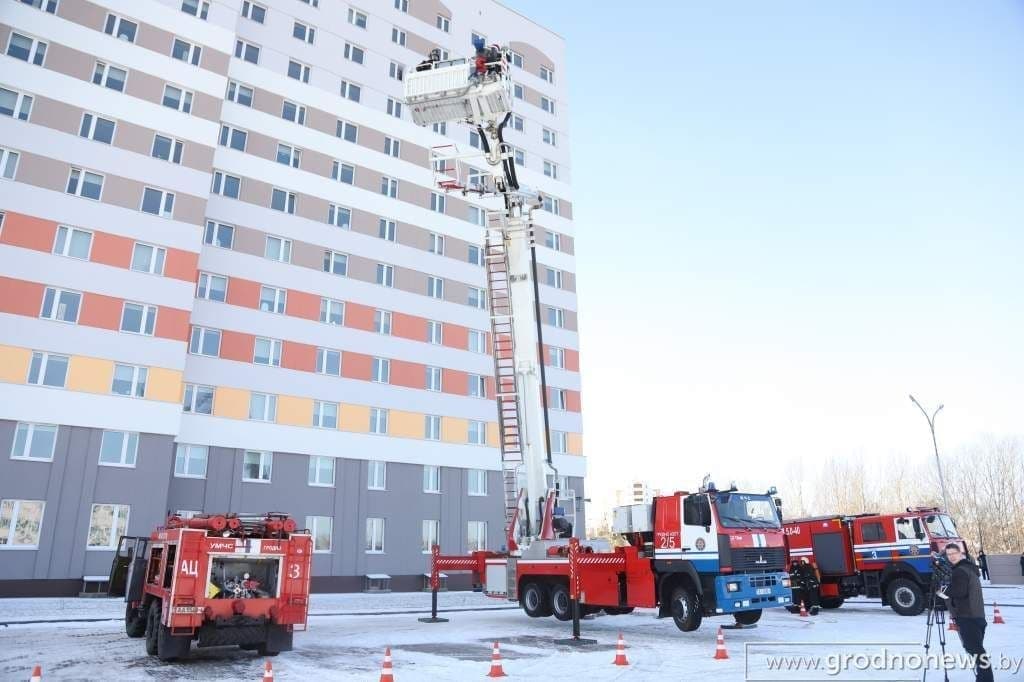
Fire exit drill took place within the framework of the event from MES “Safety Day. Attention”
On 9th of March in the dormitory of Yanka Kupala State University of Grodno, which is located in Dubko Street, officers of the Grodno City Emergency Department and representatives of the regional organization of the Belarusian Red Cross Society with the dormitory administration and students conducted an evacuation drill and practiced fire response. The rescuers demonstrated to students the possibilities of rescue instruments, suggested to try on uniforms and put out the fire with extinguisher.
Training evacuation for our students was conducted within the framework of the republican campaign of the Ministry for Emergency Situations “Safety Day. Attention” which takes place in two stages from 2 to 31 March.
The target audience of the first stage of the campaign was the residents of dormitories, visitors to children’s and Trade entertainment centers, cinemas and sports facilities. Employees of MES organize for them interactive preventive discussions about safety and actions on the signal «Attention! »
During the educational online meeting, participants of the "URA Grodno!" discussed prospects for the further cooperation with representatives of the Humboldt University of Berlin.
The achievements of the environmental initiative "URA Grodno!", that are implemented within the project "Public involvement in environmental monitoring and improvement of environmental management at the local level", were presented during the meeting.
The possibility of projects implementing on protection of the environment and education for sustainable development and prospects for network and international project cooperation were discussed.
